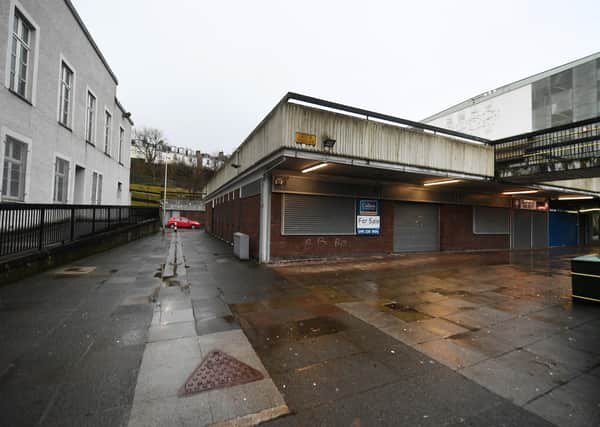How coronavirus has exposed searing inequality in Scotland – Karyn McCluskey


We’re all in this together. Are we though? This isn’t just a health pandemic, this is an economic and social pandemic. The cracks that appeared, appeared almost instantly. Those who were vulnerable or ‘just about’ getting by, were exposed to the fragmentation and disintegration of so many of the services and networks that were just about allowing them to survive and the result was, and is, terrible. Lockdown has not only exacerbated the most savage inequalities, it has also raised a magnifying glass to them.
The pandemic has drawn out the many ties that bind us; the need for connection, the desire to keep those who we love safe – but the bigger lessons are about the divisions in our society.
Advertisement
Hide AdAdvertisement
Hide AdIt’s harder to pretend you can’t see the damage that zero-hour contracts and the gig economy cause; the impact of bloated rents and poor municipal planning; the glaring divide between the luxury of panic-buying and food poverty.
And reduced access to services, whether that is justice, alcohol and drugs, health, welfare or financial support, always impacts those who already have less; those who already fight to keep their head above whatever murky waters threaten them every day, every waking hour, every moment asleep.
A friend sent me a letter they received when they applied for some welfare support. I had to read it four times and at the end, I still was none the wiser about what it said. But this isn’t just a dense letter, this letter outlines the mechanism of a payment that stands between this person and homelessness; between this person and a downward spiral that might be unrecoverable; between life and death.
For others it’s the despair of trying to find a job, when few, if any, are around – to get some predictability back into a life where days stuck at home feel long; longer than long. It’s little surprise that the conversations amongst many friends throughout the country are peppered with talk of relapses in friends’ recovery journeys that seem induced not only by the constraints and pressures of lockdown, but by how close they are to the edge of the cliff, and how perilous their existence is.
I have a colleague in Glasgow who has been giving out supermarket vouchers worth a hundred pounds to some of the families of the children she supports. Many parents have sent small thank you cards, some short, some longer – and sometimes you can read between the lines in the notes they’ve sent.
Writ large is the desire to maintain some dignity and respect, but also letting her know that this voucher was a lifeline, the ability to buy the food and things they needed and wanted, the ability to buy a small gift for their kids – the choice. I don’t know how many vouchers this colleague has, but let me tell you she is formidable and gets where water couldn’t. She is a true community member and at the end of this her small intercessions may be the thing that binds them tighter. But we have a whole summer before school starts again, and I know she is worried.
Whether we want to think about it or not, at its heart – as with everything in our small country – lies inequality. I hear often that there is opportunity in this crisis, that we can build a new Scotland, better and fairer. I hope that’s true. But first we need to acknowledge all the ways in which our country is unequal and by who, and in what way, the heavy burden of that inequality is carried.
Karyn McCluskey is chief executive of Community Justice Scotland
A message from the Editor:
Advertisement
Hide AdAdvertisement
Hide AdThank you for reading this article on our website. While I have your attention, I also have an important request to make of you.
With the coronavirus lockdown having a major impact on many of our advertisers - and consequently the revenue we receive - we are more reliant than ever on you taking out a digital subscription.
Subscribe to scotsman.com and enjoy unlimited access to Scottish news and information online and on our app. With a digital subscription, you can read more than 5 articles, see fewer ads, enjoy faster load times, and get access to exclusive newsletters and content. Visit www.scotsman.com/subscriptions now to sign up.
Our journalism costs money and we rely on advertising, print and digital revenues to help to support them. By supporting us, we are able to support you in providing trusted, fact-checked content for this website.
Joy Yates
Editorial Director
Comments
Want to join the conversation? Please or to comment on this article.